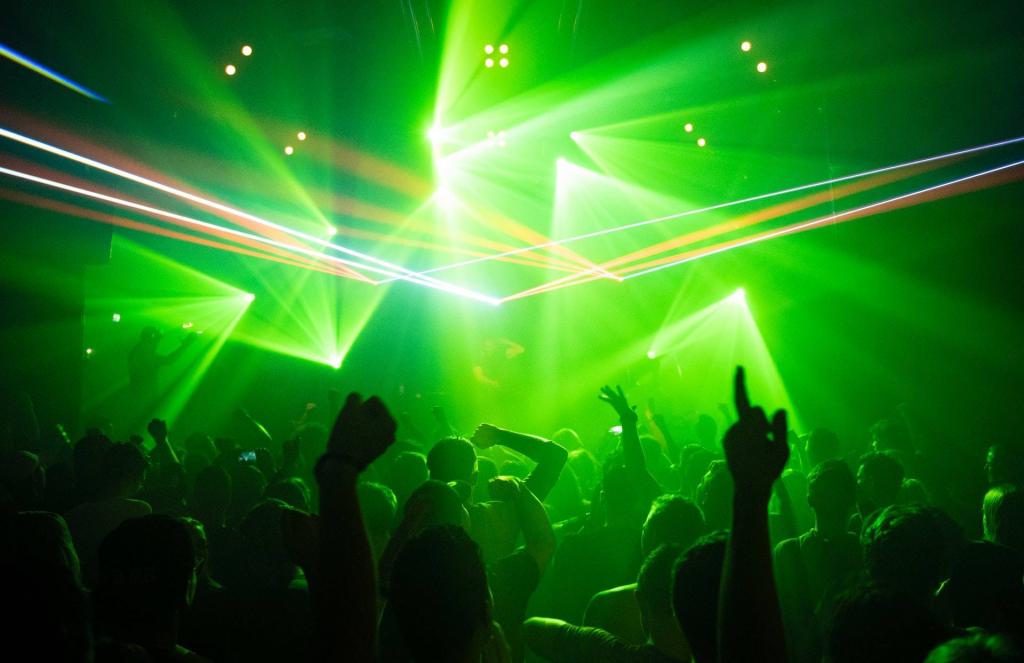Thessaloniki gets ready for its metro launch in November
The underground rapid transit lines have been under construction for almost two decades due to various project delays
 TheMayor.EU logo
TheMayor.EU logo 
The country has seen a dramatic decrease in nightclubs since the turn of the century , Source: Antoine J / Unsplash
Most of the laws governing the sale of alcohol in the country are older than the Republic itself
Today, Irish authorities announced plans to amend the country’s alcohol licensing laws. The amendments are aimed at boosting urban culture, as well as nightclubs. This should, in turn, make Ireland an attractive destination on par with the rest of Europe, as Deputy Prime Minister (Tánaiste) Leo Varadkar, put it in a press statement.
He also explained that rural pubs and nightclubs across the country are closing and communities are losing important parts of their culture.
According to an official statement, currently, the republic operates a patchwork of 100 laws, some of which stretch back to 200 years ago.
In fact, two-thirds of the laws regulating alcohol licensing and nightlife pre-date Irish Independence, which was achieved 100 years ago. This leads to a confusing bureaucratic mess that every venue needs to jump through to be able to serve or operate late into the night.
Minister for Justice Helen McEntee went a step further, explaining that nightclubs are an integral part of urban culture. She pointed out that clubbing culture is a vital component in shaping creativity and attitudes.
Ireland has, however, seen a gradual reduction in the number of nightclubs over the last 20 years. At the start of the century, there were around 500 nightclubs in the country, while that number is down to around 80, according to some estimates.
Also, in the current legislator framework, every time a venue planned to stay open after licensing hours, it needed to apply for a permit at a court. The new proposition would give venues a yearly permit, with rights for 7 days a week.
Furthermore, Minister McEntee explained that nightclubs will now have the option to serve alcohol until 5 AM and stay open until 6 AM.
One of the ‘quirks’ of Ireland’s patchwork of laws regarding new licenses is the so-called 'extinguishment’ provision, whereby, anyone seeking to open a new venue serving alcohol after 10:30 PM, needs to do so by purchasing the licensing rights from a current holder.
This can be absurdly prohibitive for towns and villages that have lost their pub due to bankruptcy and literally cannot start a new one. Furthermore, Minister McEntee pointed out that a lot of these licenses are sold at closed auctions and quite often are picked up by supermarket chains that want to get a leg up on the competition by selling alcohol late into the night in a more urbanised district.
Moreover, she explained that towns and villages that have lost their pub have also lost an important piece of their culture and a focal point.
According to Leo Varadkar, Minister for Enterprise, Trade and Employment, the new streamlined and digitalised legislation would help to boost Ireland’s nightlife.

The underground rapid transit lines have been under construction for almost two decades due to various project delays

Now you can get your wine in Talence by paying directly in Bitcoin

That’s because the state has to spend money on updating the railway infrastructure rather than subsidizing the cost of the popular pass

Rethinking renewable energy sources for the urban landscape

The examples, compiled by Beyond Fossil Fuels, can inform and inspire communities and entrepreneurs that still feel trepidation at the prospect of energy transition

Now you can get your wine in Talence by paying directly in Bitcoin

The 10th European Conference on Sustainable Cities and Towns (ESCT) sets the stage for stronger cooperation between the EU, national and local level to fast track Europe's transition to climate neutrality.

At least, that’s the promise made by the mayor of Paris, Anne Hidalgo

The underground rapid transit lines have been under construction for almost two decades due to various project delays

At least, that’s the promise made by the mayor of Paris, Anne Hidalgo

Hostal de Pinós is located in the geographical centre of the autonomous region

Despite its church-y name, the district has long been known as the hangout spot for the artsy crowds

Urban dwellers across the EU are having a say in making their surroundings friendlier to people and the environment.

Forests in the EU can help green the European construction industry and bolster a continent-wide push for architectural improvements.

Apply by 10 November and do your part for the transformation of European public spaces

An interview with the Mayor of a Polish city that seeks to reinvent itself

An interview with the newly elected ICLEI President and Mayor of Malmö

A conversation with the Mayor of Lisbon about the spirit and dimensions of innovation present in the Portuguese capital














